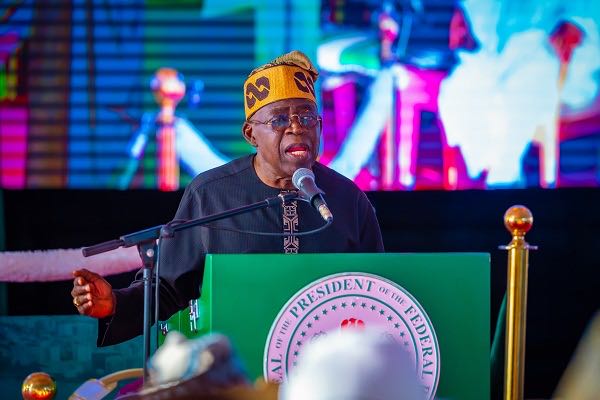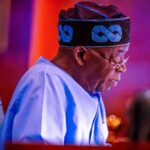President Bola Tinubu yesterday launched Nigeria’s inaugural shipment under the Guided Trade Initiative (GTI) as part of the implementation of the African Continental Free Trade Area (AfCFTA).
With the development, ten companies will be exporting Nigerian products to East, Central and North African countries.
Some of the products are Shea butter, native starch, black soap, clinkers, SIM and bank cards, alcoholic bitters and water closet, sanitary sets among others in different locations in Kenya, Cameroon, Egypt, Uganda and Algeria.
Tinubu, represented by the Secretary to the Government of the Federation, George Akume, flagged off the inaugural shipment on Tuesday at the Apapa port in Lagos.
- Russia refutes Ukraine’s claims on children’s hospital attack in Kyiv
- I’ll play as long as I can play and win – Woods
The president said Nigeria’s commitment agreement is underscored by recognition of the fact “That making AfCFTA work is not an option, but a compelling necessity.”
According to him, it is not a coincidence that this event is taking place in Lagos because the city has historically been at the forefront of driving Africa’s economic and trade dynamics.
“Tracing the journey from the Lagos Action Plan of 1980 to the Abuja Treaty of 1991, Nigeria’s commitment to African unity and economic development has never been in doubt. These historic linkages are the foundation upon which the AfCFTA stands today.
“They also serve as a testament to the enduring legacy of Nigeria’s leadership in regional integration,” Tinubu said.
He said: “The journey to prosperity has just begun. With the launch of the Guided Trade Initiative, a significant forward leap has taken place. This initiative will catalyse intra-African trade, economic diversification, and sustainable development. It will also open new markets for our products, enhance our competitiveness, and create jobs for our people.”
The Secretary General of AfCFTA, Wamkele Keabetswe Mene, said Nigeria has a critical role to play in the successful implementation of the agreement.
Mene submitted that with over 3.4trillion dollars in the domestic market, Africa has no option than to develop its economy.
He identified harmonisation of customs laws, logistics, interconnectivity and infrastructure deficit as some of the challenges facing the AfCFTA implementation, but insisted must rise above these challenges and must jointly resolve to succeed in the implementation.
Finance Minister, Wale Edun envisaged that with the launch there will be a growth in Nigeria’s per capita GDP.
In her remarks, Minister of Trade, Industry and Investment, Doris said “By launching the Guided Trade Initiative today, our goal is to operationalise the AfCFTA by providing practical support and guidance to businesses and entrepreneurs.”
She asked Nigerian businesses to actively engage with GTI and seize the opportunities presented by the AfCFTA.
In his remarks, President of the Nigerian Bar Association (NBA), Yakubu Maikyau, SAN, said Nigerian lawyers will leverage on the agreement by exporting legal services to other African countries.

 Join Daily Trust WhatsApp Community For Quick Access To News and Happenings Around You.
Join Daily Trust WhatsApp Community For Quick Access To News and Happenings Around You.


